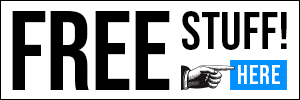As an undergraduate studying marine biology, I became aware of the droll reality of scientific pursuits too late. I’d like to blame it on that one chemistry class I had to retake three times. Or my somewhat mundane, often-disturbing toxicology lab work on campus. Regurgitating the script of fun marine mammal facts as a volunteer docent to visitors of the university’s seaside research center did little to satisfy my Jacques Costeau-esque ambitions.
I spent a lot of time at the school’s grandiose science library, where I began experiencing nerdy FOMO. There, locked into reading my assigned textbooks (usually chemistry; see above), I wondered what intellectual mysteries I might be missing out on. I began to realize how the success of my graduate work would necessarily rely on its specificity, and that no matter how important I believed that study to be, I wouldn’t be able to continue investigating other realms. To follow my many curiosities, scientific and otherwise.
The marine bio dream officially died on Maui, where the magnitude of my student loans deterred me from accepting another unpaid gig as a tour guide on a humpback whale-watching boat. As I pondered taking on the expense of graduate school, I made a life-changing discovery: reading and writing as a pathway to greater learning. I accepted a proofreading job at the local paper, which quickly turned into a reporting and editing position.
It was around this time that I read Mary Roach’s Stiff: The Curious Lives of Human Cadavers (2003). It opens thusly: “The way I see it, being dead is not terribly far off from being on a cruise ship.” Entranced by her irreverent humor, I then devoured Spook: Science Tackles the Afterlife (2005) and later, Bonk: The Curious Coupling of Science and Sex (2008). In each, Roach is our indefatigable guide through the wild and wacky world of the macabre, incredulous and utterly fascinating—exceeding my own musings from that campus library long ago.
I’m so thankful to her for showing me how much awe and wonder there is to uncover. And that great treasures await where you least expect them. No science education required.













